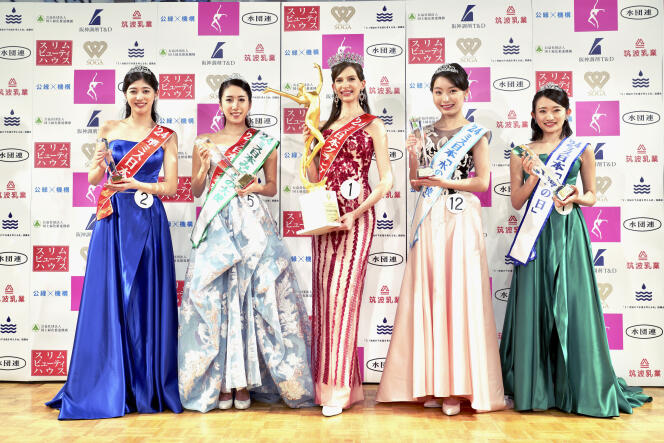


Karolina Shiino's return of her Miss Japan title on Wednesday, February 7 puts an end to the controversy surrounding her foreign origins. Criticized in the wake of revelations by the weekly Shukan Bunshun about her affair with a married man – influencer Takuma Maeda, who is also a member of the Miss Japan jury – Ms. Shiino has returned the crown that had drawn the wrath of extremists attached to a strict definition of what it means to be Japanese.
Born to Ukrainian parents, Ms. Shiino arrived in Japan at the age of five. She grew up in Nagoya (Central Japan) and obtained Japanese citizenship in 2022.
However, in the eyes of many Japanese, the passport is not enough to make her a perfect "image of the beauty of Japanese women," the official criterion for a Miss Japan.
On January 22, Ms. Shiino became the first woman of foreign origin to win the pageant, which was created in 1950, and she welcomed the recognition of her Japanese identity. "There are racial barriers and, in many situations, I was not accepted as Japanese. I am now. I thank you for it," she said. "She speaks and writes excellent and courteous Japanese. She's more Japanese than we are," enthused contest organizer Ai Wada.
Some interpreted this victory as a redefinition of what it means to be Japanese in a country that now boasts a record three million foreign residents. Japan is home to significant minorities such as the Ainu, Koreans and the inhabitants of Okinawa – the medieval Ryukyu kingdom. Increasingly, mixed-race individuals are asserting themselves in culture and sport, like tennis player Naomi Osaka, whose father is Haitian. "Being typically Japanese is not only about appearance or blood, but also about heart and mind," noted former MP and Miss Japan contestant Megumi Kaneko.
But there has also been widespread criticism of Ms. Shiino's victory, saying that a white woman cannot be the "face of Japan," a country that is otherwise subject to citizenship by descent and rejects dual citizenship. "The winner is very beautiful. But, for me, Miss Japan is someone whose beauty represents the Japanese people. The winner does not fit this definition; her beauty is different from Japanese beauty," manga author Mayumi Kurata commented on X.
Reacting to the debates, Japanese-Irish actress Chiaki Horan explained that, although she was born in Japan and has Japanese citizenship, she has nevertheless often been confronted with questions about her identity. "Some people make blood purity an inseparable part of Japanese identity," she said.
You have 15% of this article left to read. The rest is for subscribers only.
